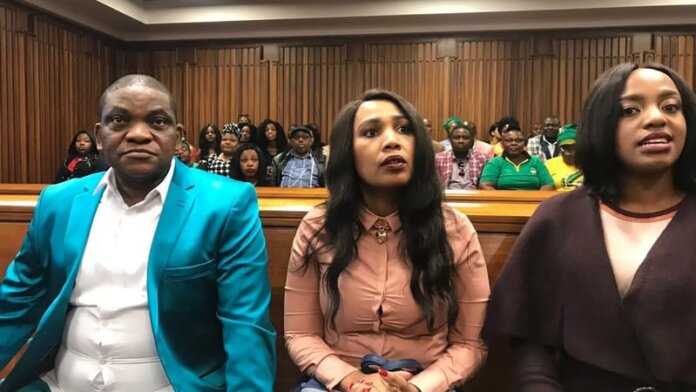The high-profile trial of televangelist Timothy Omotoso and his two co-accused, Lusanda Sulani and Zikiswa Sitho, has been postponed to 22 January 2025. The High Court of South Africa, Eastern Cape Division, Gqeberha, announced the adjournment to allow for closing arguments after all three accused took the stand to present their defence and underwent cross-examination by the state.
The case, which has been plagued by delays since the arrest of the trio in 2017, made significant progress during the past few days of court proceedings. However, the protracted nature of the trial has caused frustration, with some witnesses withdrawing their willingness to testify. This development led to a reduction in the charges from 63 to 32 counts, including racketeering, trafficking in persons, rape, and sexual assault.
Omotoso, 63, a Nigerian national and leader of the Jesus Dominion International (JDI) church, has been denied bail and remains in custody. His co-accused, Sulani and Sitho, who served as his assistants, are out on bail. The JDI church, which had major branches in South Africa, Nigeria, and Israel, operated its South African headquarters in Durban.
The allegations against Omotoso include manipulating his congregants under the guise of spiritual guidance. Complainants, many of whom were church members, employees, or individuals recruited under promises of spiritual and personal improvement, claim they were coerced into complying with strict house rules. These included relinquishing their cell phones and cutting off contact with male companions.
Omotoso allegedly instructed his co-accused to arrange for complainants to travel to Durban, Israel, or Nigeria, where they were confined to a single room and subjected to strict control. Reports claim that he would select individuals from this group to accompany him to his private quarters, where sexual assaults allegedly occurred.
The trial has faced numerous obstacles, including Omotoso’s repeated applications for mistrials and his January 2024 attempt to have Judge Irma Schoeman reconsider her earlier dismissal of a Section 174 application for discharge. Judge Schoeman ruled that the accused must present their case, allowing the state to proceed with cross-examinations.
Despite the challenges, the state remains committed to ensuring justice for the victims. The postponement to January 2025 marks a crucial stage in the drawn-out proceedings, as the case approaches a conclusion with the anticipated closing arguments.
The accused have consistently denied the allegations, and the court will ultimately determine their guilt or innocence when judgment is delivered.
For updates on this case and other legal matters, stay tuned.






